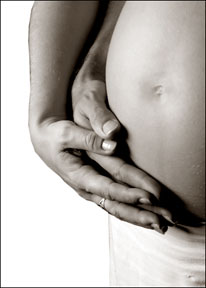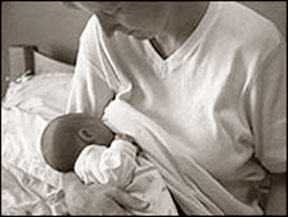
Menopause - An uncomplicated metabolic change
By Umangi de Mel
[email protected]
 “Recently there has been a lot of clinical and media interest about
menopause related health issues. Especially now that the life expectancy
of Sri Lankan women have gone up to 70 years, they live 25 to 30 years
after menopause,” says Kapila Ranasinghe, Consultant Psychiatrist. “Recently there has been a lot of clinical and media interest about
menopause related health issues. Especially now that the life expectancy
of Sri Lankan women have gone up to 70 years, they live 25 to 30 years
after menopause,” says Kapila Ranasinghe, Consultant Psychiatrist.
However, he points out that each woman takes it differently, “A large
number of women who have completed having families welcome it, while
some take it negatively as they feel that they’ve lost fertility.
Whatever it is, they feel that it’s definitely an entrance into a new
phase of life. Because the woman experiences new changes both
biologically and psychologically while entering a different social
group”.
What is menopause?
“The word is used to mark the cessation of menstruation which is on
since puberty.
The important biological change that takes place during menopause is
that the ovary stops production of oestrogen, which brings certain
changes to the whole body and brain.
But most of the acute changes are seen during peri-menopause and not
after. This is due to rapid reduction of circulation of oestrogen in the
blood.
Usual symptoms are:
* Hot flushes
* Tiresomeness
* Unnecessary worrying
* Sleep disturbances.
These are more like anxiety symptoms that usually differ from person
to person or culture to culture. While hot flushes and cessation of
menstruation occur universally the rest of the symptoms depend on one’s
cultural background, social activities, and other concerns.”
He also points out that if someone perceives it negatively and start
worrying about ageing, they start developing emotional issues. “They
will feel down for sometime. If the particular woman is concerned about
how they should face it, she should go to a counsellor, gynaecologist or
a psychiatrist.
However, the reduction in the oestrogen levels can affect the vaginal
lubrication, causing atrophy of vaginal tissues. If this happens, sexual
intercourse can become unpleasant and even painful.
This can be treated by gynaecologists by prescribing vaginal creams
and other applications which will restore the sexual life of the
individual and the partner.
Sometimes these sexual problems are associated with other systematic
changes like hot flushes or changes in blood pressure.
Oestrogen hormone replacement can be considered under the supervision
of an experienced doctor. Hormone replacement is helpful to reduce
ageing that is associated with the rapid reduction of oestrogen levels
in the body. It improves the mineralisation of the bones, muscle mass,
the skin and the texture.
There are claims that hormone replacement improves psychological and
cognitive functions. However, there is no evidence to support this. In
fact, there are case reports of cognitive functions worsening after
hormonal replacement.
Improvement of general well-being of a person is likely to improve
the mental well-being of that person. At the same time, one must be
careful as it makes her vulnerable to various other medical problems and
side effects.
Also, it is known that hormonal replacement increases the risk of
breast cancer, uterine cancer and the risk of blood clot related
disorders called ‘Thromboembolism.’ Thus recent research warns against
the hormone replacement therapy.
At the moment, medical professionals don’t advocate hormonal
replacement as the first choice to counter balance medical and
psychological symptoms seen after menopause.”
Dr. Ranasinghe shows that the present tendency is to use nutritional
diets, exercises and other lifestyle measures to counter balance
problems seen in menopause.
“It’s common practice for doctors and other healthcare service
providers to prescribe nutritionally balanced, high fibre diets for this
age group. It’s advisable to take green vegetables and fruits with lots
of minerals and vitamins.
Also it’s very important to cut down the amount of fat and
carbohydrates taken by the woman to reduce the unnecessary fat
distribution. High calcium and minerals help to restore bones and muscle
mass. This should be supplemented with regular cardio-vascular exercises
and regular walking. (30-45 minutes).
If someone is interested in learning more about ‘Menopause’, there
are many books and even the internet comes in handy.
Nutritional and exercise tips can be taken from a dietician.
If the psychological and physical problems keep increasing, the
person should go to a doctor.
The tendency’s that problems encountered in the menopausal period is
best managed mainly using non hormone based treatment. They’re well
recognised as effective approaches to management in problems during or
after menopause without putting the person in danger of developing other
illnesses.”
Diagnosis and treatment of ectopic pregnancy
Dr. Vijith Vidyabhushana
Consultant Obstetrician and Gynaecologist, Colombo, South Teaching
Hospital, Kalubowila.
Cont. from last week....
Your risk of getting an ectopic pregnancy and the signs and sypmtomps
and effects were discussed last week.
How is it diagnosed?
 It is important that ectopic pregnancy is diagnosed as early as
possible to avoid complications. If it isn’t treated quickly, there may
be severe internal bleeding leading to shock, and in a very small number
of cases, death of the mother. Therefore if the patient has It is important that ectopic pregnancy is diagnosed as early as
possible to avoid complications. If it isn’t treated quickly, there may
be severe internal bleeding leading to shock, and in a very small number
of cases, death of the mother. Therefore if the patient has
collapsed or if there is evidence of internal bleeding the patient
will be rushed to the theatre for surgery following a clinical diagnosis
without further investigations which can delay treatment. However, only
a minority of patients present in this way. If an ectopic pregnancy is
suspected, the woman should attend the hospital.
The first test would be a ‘pregnancy test’ to confirm that she is
pregnant. It is important to understand the basis and how the pregnancy
test is done as it is an important test in view of diagnosing an ectopic
pregnancy.
The developing pregnancy tissue starts to produce pregnancy hormone
(human chorionic gonadotrophin - hCG) which is thought to sustain
pregnancy. This hormone appears in mother’s blood and filtered through
kidneys in to mother’s urine.
Sensitive blood tests done on mother’s blood can detect hCG as it is
produced. Much more of this hormone is necessary for the urine test to
become positive. So the urine pregnancy test will become positive later
as levels rise. Usually, currently available urine pregnancy test kits
can detect a pregnancy as early as a day or two after missing a period.
(Blood preg. test +ve above 10 international units per litre of hCG
and urine +ve above 25iu/l)
If the patient has not collapsed, an Ultrasound scan will be done
following a positive pregnancy test. If the scan shows an empty uterus
but the pregnancy test is positive, an ectopic pregnancy is likely
although the pregnancy may be early or a miscarriage might have
occurred.
The best ultrasound scan is done with a modern intravaginal probe(
transvaginal scan- TVS) but it is not always possible to see an ectopic
on scan.
If the woman is well and not in severe pain, she may be investigated
with a blood hormone test done repeatedly over two days to ascertain
whether there is an ectopic or not.
If the pregnancy is inside the womb the pregnancy hormone levels in
blood would be doubled in 48 hours. If there is a rise of this hormone
which is less than expected, it is more in favour of diagnosis of an
ectopic pregnancy.
If there is a high index of suspicion or the woman develops worsening
signs, a laparoscopy (keyhole surgery) to inspect the tubes is done and
if an ectopic pregnancy is found it can be removed laparoscopically.
If the diagnosis is obvious, however, abdominal surgery to remove the
ectopic pregnancy is more likely and blood transfusions may be required
to replace lost blood.
What are the treatment options?
Frequently ectopic pregnancies can be treated with planned but urgent
surgery. Occasionally sudden emergency treatment is needed.
Therefore the best treatment option for most ectopic pregnancies
involves urgent planned surgery to remove the growing embryo. The embryo
cannot be saved or it cannot be put back in to the womb if it has begun
to grow outside the womb.
The operation is usually done by laparoscopic (keyhole) surgery
involving a small incisions in the abdomen.
Keyhole surgery has fewer risks of surgical complications than open
surgery, such as blood loss, but open surgery has slightly better
results. Your doctor will discuss these options with you, deciding what
is best based on your current condition and history. Immediate emergency
surgery is required if the fallopian tube has split and there is heavy
bleeding which is life-threatening.
According to medical evidence, it is always better to remove the
whole Fallopian tube with the ectopic pregnancy as it will prevent
recurrence of another ectopic pregnancy in the tube which had been
scarred and damaged due to this ectopic pregnancy.
A damaged fallopian tube will be repaired only if other tube is also
damaged or if it does not look normal. You still have a good chance of
having future normal pregnancies even if you have one fallopian tube.
If an ectopic pregnancy is diagnosed early in the presence of few
symptoms, it can sometimes be treated with a drug called methotrexate
instead of surgery. This drug kills the cells of the growing embryo, but
has side effects such as abdominal pain in many women. You will also
need to be closely monitored with regular blood tests for the following
few weeks.
Traditionally methotrexate has been given by an injection into the
muscles or directly into the fallopian tube, but recent evidence
suggests that an oral tablet form (taken by mouth) may be more
effective. As it involves longer hospital stay and serial blood tests
which are relatively expensive this kind of management is not commonly
done in our country.
Sometimes a ‘wait and see’ approach is used, for ectopic pregnancies
that are diagnosed early, or for pregnancies where it has not been
confirmed where the embro is (because it cannot be found on a
transvaginal ultrasound).
This can be an alternative to surgery because many ectopic
pregnancies will miscarry naturally. However, this is not advised often,
because there is still a risk that the fallopian tube will rupture and
cause internal bleeding.
Complications
All ectopic pregnancies should be diagnosed as early as possible to
avoid complications. If it is not treated at the appropriate time, there
may be severe internal bleeding leading to shock and collapse, and in a
very small number of cases, death of the mother. Some parents will feel
depressed or sad if they have an ectopic pregnancy, as they would for a
miscarriage caused by other factors.
They may also be worried about their future changes of having a
normal pregnancy. Women with only one fallopian tube still have a good
chance of having a normal future pregnancy.
Your chances will depend very much on your individual case but
approximately 65% of women will become pregnant again within 18 months
of having an ectopic pregnancy.However approximately 10-15% of women
will have another ectopic pregnancy.
What about future pregnancies?
There is a good chance of getting another pregnancy inside the womb
in 85 out of 100 patients who get ectopic pregnancies . But there is a
10 to 15 fold rise of the risk of getting an ectopic pregnancy again,
compared to some one who has not had an ectopic who has a risk of about
1%.
What should I do in future pregnancies?
As there is a higher risk of recurrence of an ectopic pregnancy, you
have to get a urine pregnancy test done as soon as you think that you
are pregnant.
If it is positive you have to see your Gynaecologist as soon as you
can to get a transvaginal Ultrasound scan done to see if the pregnancy
is in the right place. An internal scan(TVS) as early as 4 weeks would
reveal this.
Breastfeeding ‘helps to boost IQ’
 More evidence is being put forward that breastfed babies eventually
become more intelligent than those who are fed with formula milk. More evidence is being put forward that breastfed babies eventually
become more intelligent than those who are fed with formula milk.
Canada’s McGill University found breastfed babies ended up performing
better in IQ tests by the age of six.
But the researchers were unsure whether it was related to the breast
milk itself or the bond from breastfeeding.
The study of nearly 14,000 children is the latest in a series of
reports to have found such a positive link.
However, one problem has been that some of the research has struggled
to identify whether the findings were related to the fact that mothers
from more affluent backgrounds were more likely to breastfeed and it was
factors related to the family circumstances that was really influencing
intelligence.
But the latest study attempted to take this into account by following
the progress of children born in hospitals in Belarus, some of which ran
breastfeeding promotion schemes to boost rates across all groups.
They found that those who breastfed exclusively for the first three
months - with many also continuing to 12 months - scored an average of
5.9 points higher on IQ tests in childhood.
Teachers also rated these children significantly higher academically
than control children in both reading and writing, the Archives of
General Psychiatry reported.
Lead researcher Professor Michael Kramer said: “Long-term, exclusive
breastfeeding appears to improve children’s cognitive development.”
But he added: “Even though the treatment difference appears causal,
it remains unclear whether the observed cognitive benefits of
breastfeeding are due to some constituents of breast milk or are related
to the physical and social interactions inherent in breastfeeding.”
Changes
Fatty acids found in breast milk are thought to boost intelligence,
but the report said the physical and emotional aspect of breastfeeding
may lead to permanent changes to brain development.
The researchers also suggested breastfeeding may increase verbal
interaction between mother and child, which in turn could aid their
development.
Nonetheless Professor Kramer said more efforts should be made to
promote breastfeeding. In England, the government recommends mothers
breastfeed exclusively for the first six months. But research shows
while three quarters start off breastfeeding, just one in four are still
doing it by six months.
Rosie Dodds, of the National Childbirth Trust, said: “This research
certainly increases the evidence about the impact of breastfeeding. “And
I think what we now need is more effort put into supporting it.”
Baby bottle chemical label call
More information should be given to parents about a controversial
chemical found in most plastic baby bottles, the National Childbirth
Trust has said. American scientists last month raised concerns about
Bisphenol A, or BPA, which they say could cause behavioural changes and
the early onset of puberty.
Some US retailers are to stop selling the bottles, while Canada wants
a ban. The National Childbirth Trust wants all UK bottles clearly
labelled, but the government says they are safe to use.
In April, the National Toxicology Program, part of the US National
Institutes of Health, found that, based on animal experiments, exposure
to low-levels of BPA “can cause changes in behaviour and the brain,
prostate gland, mammary gland and the age at which females attain
puberty”.
Situation ‘concerning’
In the US, major chain stores, including Wal-Mart - the word’s
largest retailer - say they are now going to stop selling bottles made
with the chemical.
In the UK, Wal-Mart subsidiary Asda is producing its own BPA-free
range. BPA is widely used in reusable plastic products to prevent them
from shattering.
The National Childbirth Trust wants bottles containing BPA to be
clearly labelled. Belinda Phipps, the charity’s chief executive, said
the lack of awareness was “concerning”.
“As a first step, it is important that bottles and other items that
might reach a baby’s mouth are labelled in a standard and
easy-to-understand way. This will help to remove the risk of Bisphenol A
contamination.”
The charity advised parents not to pour boiling water directly into a
bottle, as this could cause more of the chemical to be released. It also
said scratched and damaged bottles should be discarded. The Food
Standards Agency and the manufacturers say the amount of the chemical in
such products is well below levels considered harmful and the bottles
are completely safe to use.
BBC
|
